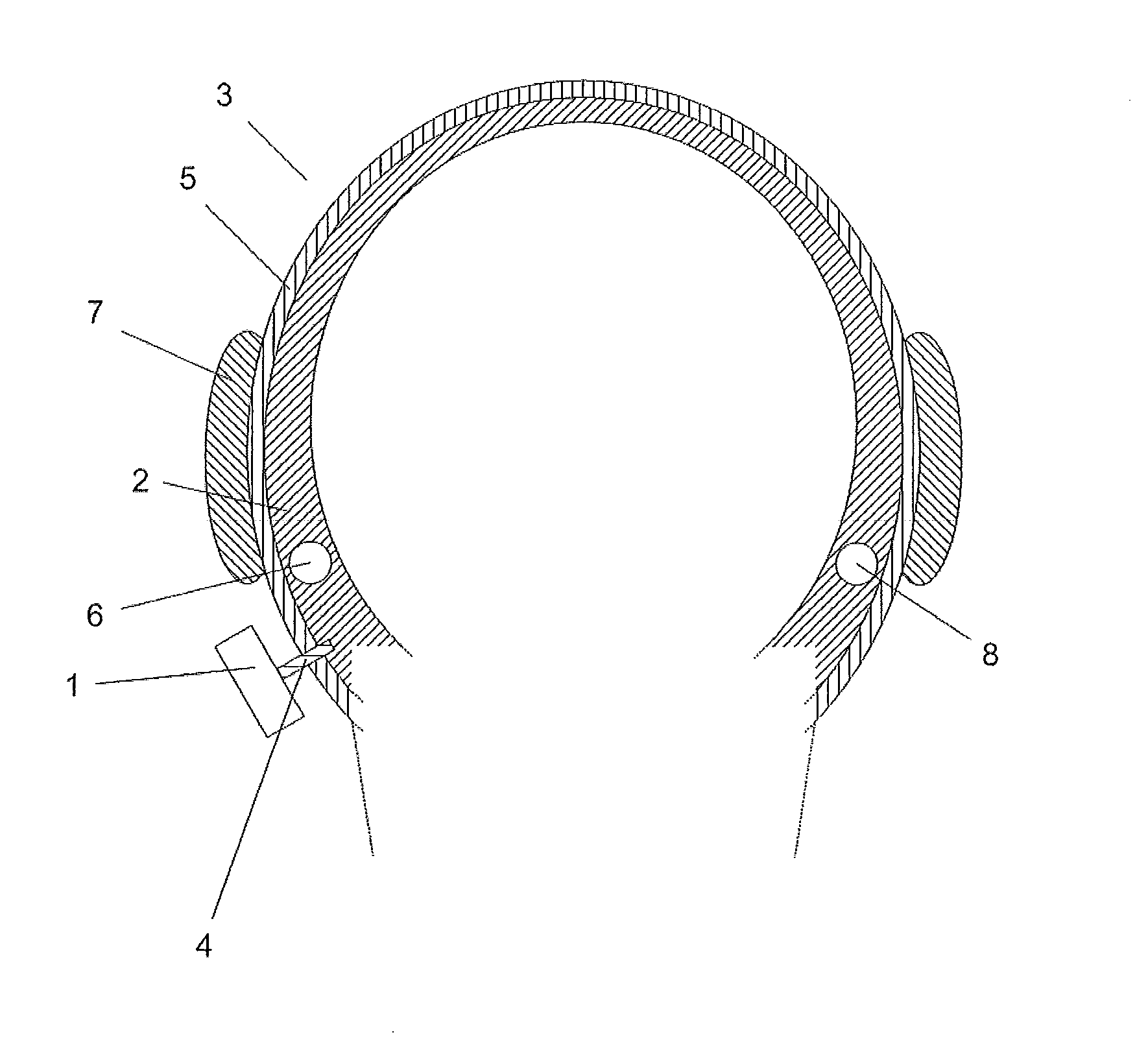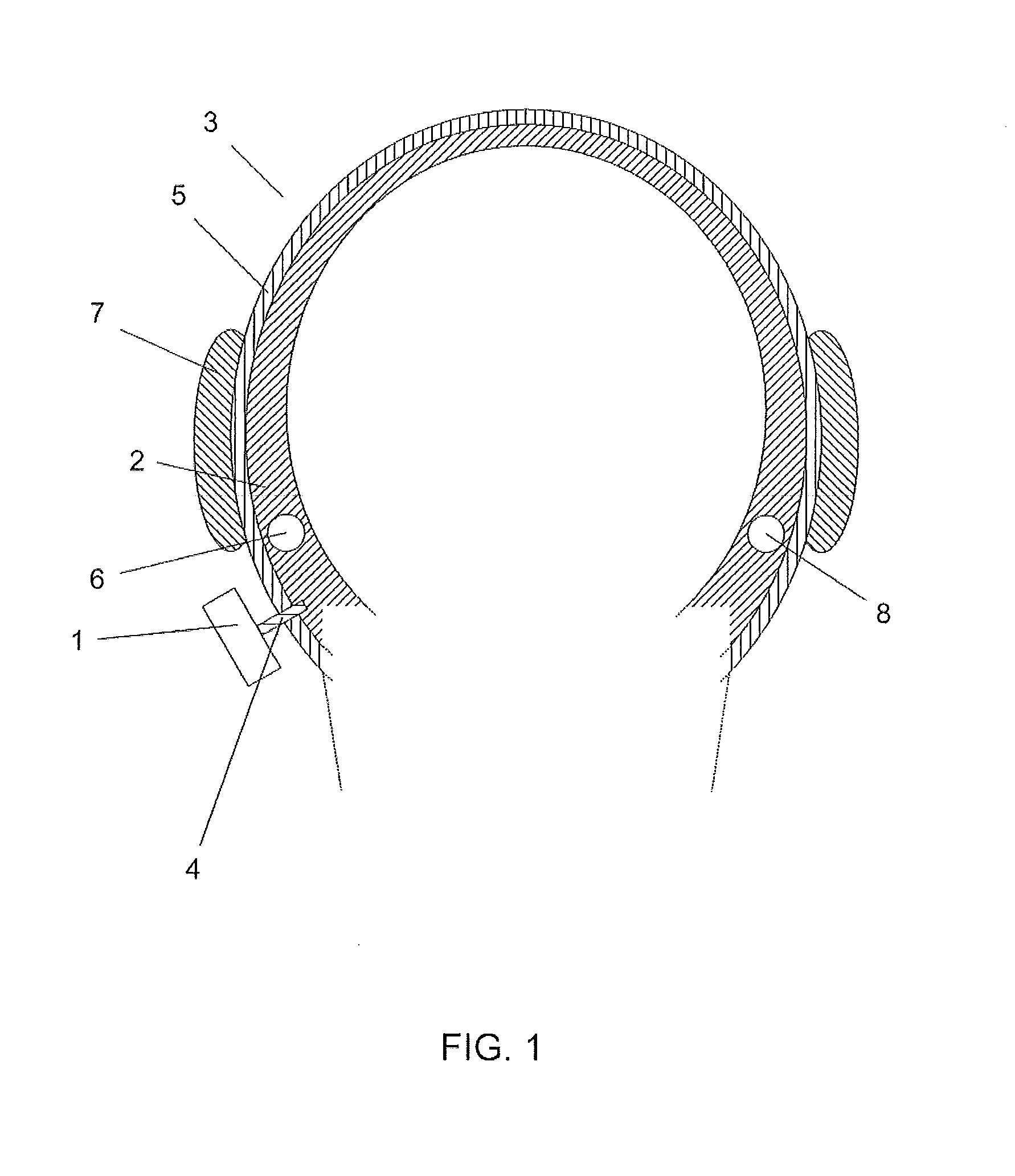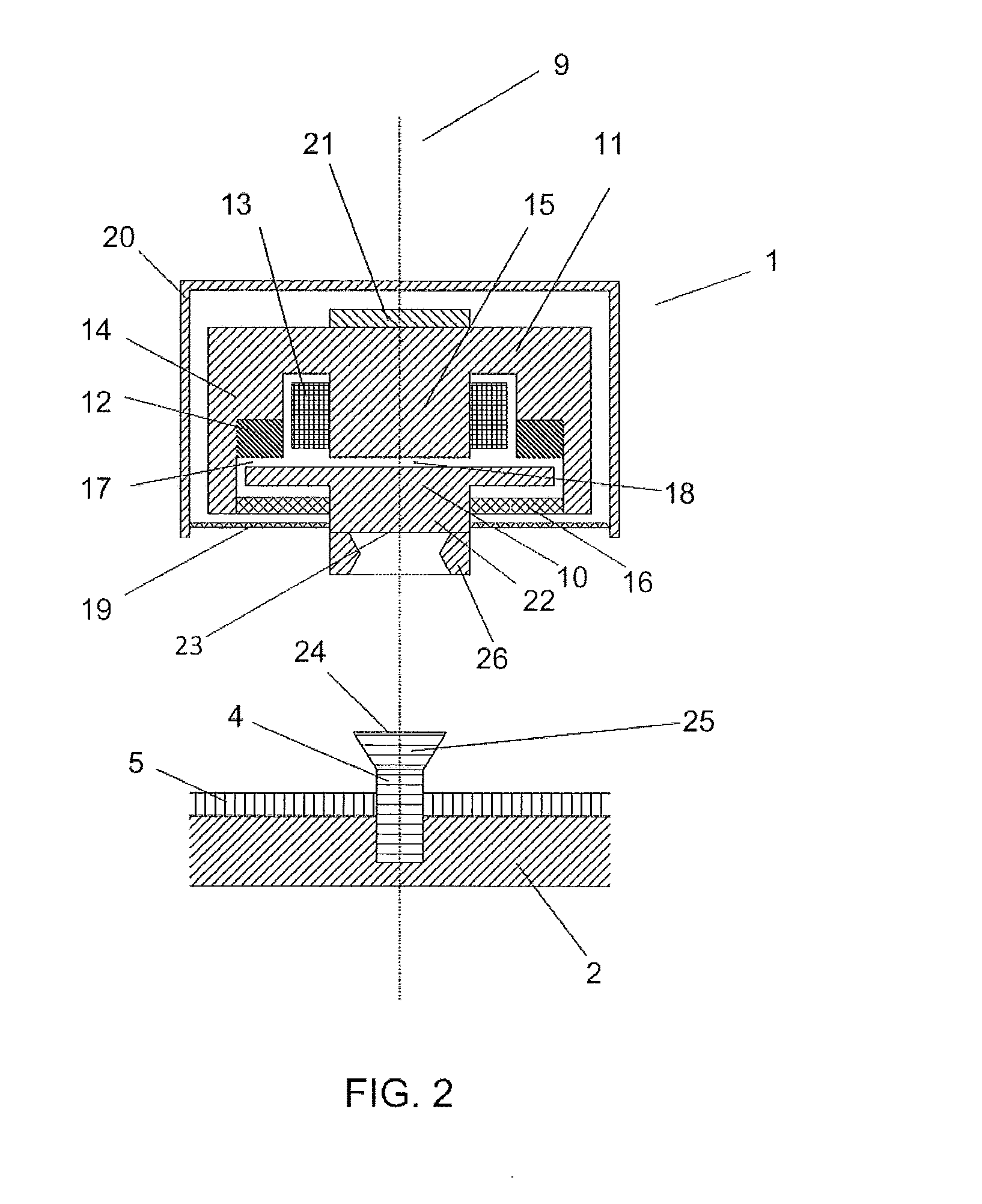Device and method for applying a vibration signal to a human skull bone
a technology of vibration signal and skull bone, which is applied in the direction of bone conduction transducer hearing device, deaf-aid set, electric apparatus, etc., can solve the problems of insufficient coupling, insufficient correlation between the output of the accelerometer and the vibrational force applied to the skull,
- Summary
- Abstract
- Description
- Claims
- Application Information
AI Technical Summary
Benefits of technology
Problems solved by technology
Method used
Image
Examples
Embodiment Construction
[0021]FIG. 1 shows a vibrator 1 connected to the skull bone 2 of a person's head 3 via a fixture 4 osseointegrated in the skull bone 2. The fixture 4 protrudes through the tissue 5 and the skin covering the skull 2. Vibrations generated in the vibrator 1 travel through the fixture 4 to the skull bone 2 and further on to the proximal inner ear 6. This enables the person to perceive the vibrations as sound, even in the case that the outer ear 7 or the middle ear (not shown) has a deficiency that causes acoustic signals to be attenuated, provided that the vibrations are strong enough. The vibrations also travel to the distal inner ear 8, which further enables the person to perceive the vibrations as sound in the case that the person is completely deaf on the proximal inner ear 6, again provided that the vibrations are strong enough.
[0022]The vibrator 1 shown in the upper part of FIG. 2 is substantially rotationally symmetric with respect to the line 9 and comprises a vibration element ...
PUM
 Login to View More
Login to View More Abstract
Description
Claims
Application Information
 Login to View More
Login to View More - R&D
- Intellectual Property
- Life Sciences
- Materials
- Tech Scout
- Unparalleled Data Quality
- Higher Quality Content
- 60% Fewer Hallucinations
Browse by: Latest US Patents, China's latest patents, Technical Efficacy Thesaurus, Application Domain, Technology Topic, Popular Technical Reports.
© 2025 PatSnap. All rights reserved.Legal|Privacy policy|Modern Slavery Act Transparency Statement|Sitemap|About US| Contact US: help@patsnap.com



